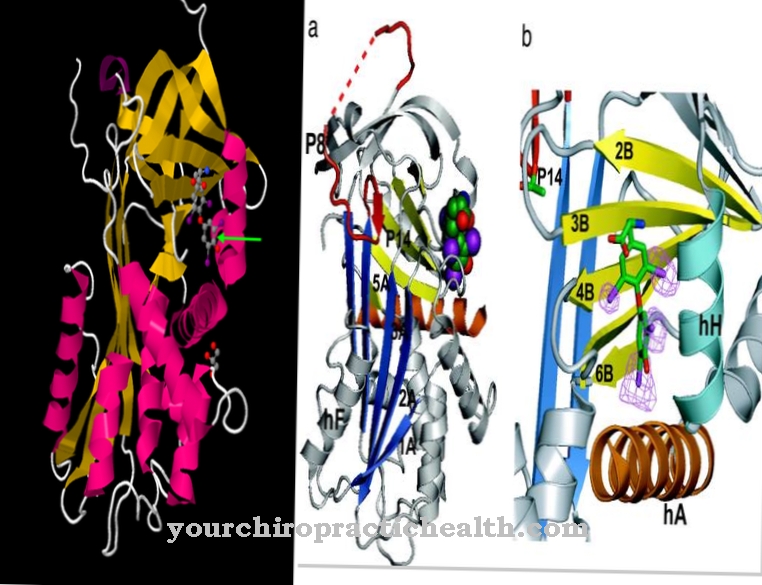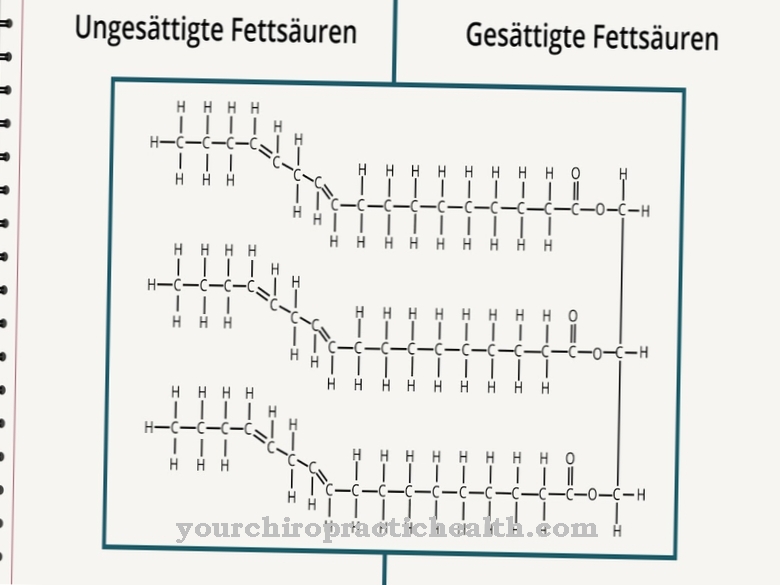selenium is a chemical element with atomic number 34 and the symbol Se. Selenium takes on numerous tasks in the human body. It is used, for example, to activate thyroid hormones or to prevent premature cell aging.
What is selenium
Selenium is an essential trace element. Essential means that the body needs selenium but cannot produce it itself. It must be taken with the food.
Selenium was discovered in 1817 by a Swedish chemist. For a long time it was considered extremely poisonous. It was not until the 50s of the 20th century that researchers Foltz and Schwarz discovered that selenium is vital and that selenium deficiency can lead to diseases. Selenium is only required in small amounts. Therefore it belongs to the trace elements.
Function, effect & tasks
Selenium has many different functions. It is a component of numerous proteins. These are also called selenoproteins. Selenoproteins take on important functions in protective and defense processes. The selenoproteins carry selenium as an active center and can therefore react quickly. They act as an antioxidant in case of oxidative stress.
Glutathione peroxidase is a particularly important selenoprotein. It protects the cells of the body from the attacks of free radicals. Free radicals are created during metabolic processes involving oxygen. External factors such as smoking, stress or UV radiation also generate more free radicals. These free radicals are incomplete in their chemical structure. You are missing an electron. They try to take this electron away from other cells. In doing so, they damage the cell membranes and, under certain circumstances, the entire cell. Free radicals are suspected to play a crucial role in the development of cancer. Glutathione peroxidase can render harmful radicals harmless.
Another selenoprotein is iodothyronine deiodase. The enzyme is responsible for the balance of thyroid hormones. In addition to these two proteins, there are many other important selenoproteins. The trace element also plays an important role in inflammatory processes. Inflammatory processes in the body can be intensified by selenium. At the same time, however, selenium also stimulates the immune system. It is essential for detoxifying heavy metals such as mercury, lead or cadmium.
Selenium also appears to have a positive impact on heart health.It keeps the blood vessels elastic and can prevent arteriosclerosis.
Education, occurrence, properties & optimal values
The human body contains an average of 10 to 15 milligrams of selenium. Most of it is in the muscles, liver, kidneys, and heart. Selenium cannot be produced by the body itself, but must be taken in with food. The uptake takes place in the upper sections of the small intestine. Too much selenium absorbed is excreted in the urine.
An adequate intake of selenium is around 0.8 to 1 μg per kilogram of body weight. For an adult, the intake should be between 30 and 70 µg. Selenium is mainly found in animal and vegetable protein. Meat, fish, offal, nuts, legumes and grains are particularly rich in selenium. Organically grown products usually contain more selenium as they are not sprayed with sulfur-containing fertilizers. With the simultaneous supply of vitamins A, C and E, the bioavailability of selenium in the body can be improved.
Diseases & Disorders
Not all people manage to get enough selenium with their diet. A selenium deficiency occurs, for example, with long-term artificial nutrition, with dialysis patients, while breastfeeding, with alcohol abuse, with a vegetarian diet and with heavy metal loads.
A deficiency in selenium can be detected in whole blood and serum. The selenium status, however, should not be determined from hair or fingernails. Hair and nails do not actively participate in the metabolism. Thus, based on the selenium content of the hair and nails, no statement can be made about the selenium status.
Selenium deficiency can be linked to numerous diseases. A deficiency in selenium, for example, weakens the immune system. The result is an increased susceptibility to infection. Those affected suffer more from colds or flu-like infections. Chronic inflammatory diseases can also be the result of a selenium deficiency. A connection between selenium deficiency and Crohn's disease or ulcerative colitis is conceivable.
Some studies also suggest a connection between high blood pressure and low selenium levels. Low selenium levels can also lead to lipid metabolism disorders and promote the development of arteriosclerosis. There is also evidence that a selenium deficiency can negatively affect fertility. For example, women who had a miscarriage had very low selenium levels in their blood. In men, however, a selenium deficiency leads to reduced mobility and impaired maturation of the sperm.
However, it is not just a lack of selenium that can have consequences for the body. Selenium can also be overdosed. The body normally excretes the excess selenium with the urine through the kidneys and the urinary tract. However, if larger amounts of selenium are taken over a long period of time, the body can no longer completely excrete the excess selenium and symptoms arise.
However, a selenium excess can actually only be achieved through dietary supplements. The result is hair loss and restlessness. In extreme cases, the liver can be damaged. Nerve disorders and even a weak heart muscle can also be the result of excess selenium. The blood values should therefore always be determined by a doctor before the substitution.
























.jpg)



